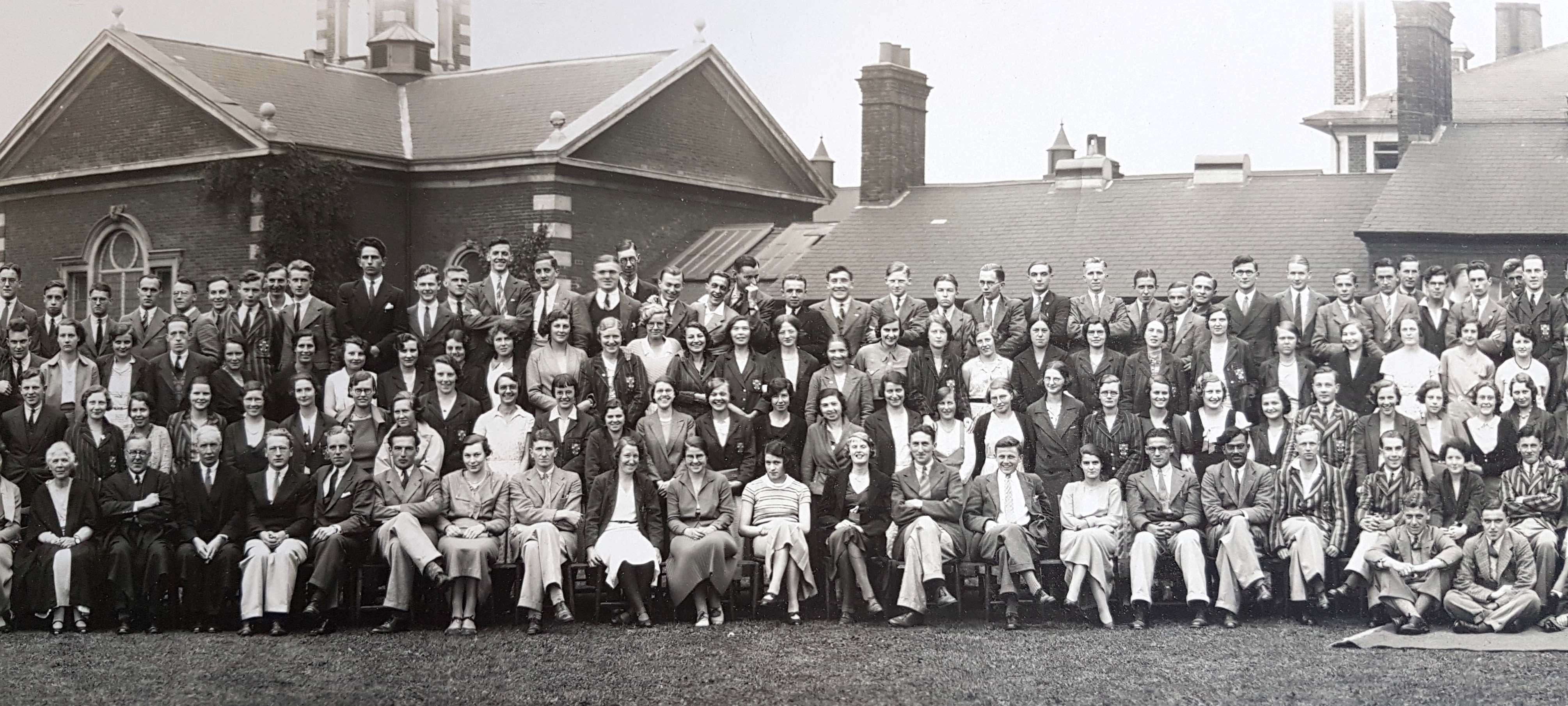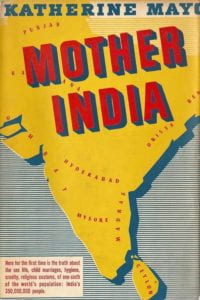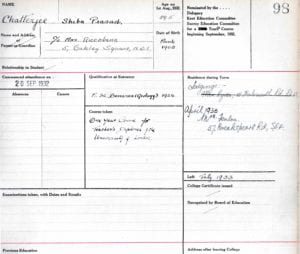
Shiba Chatterjee seated front row fifth from the right- the only non-white and overseas student at Goldsmiths’ College in 1932-33. Image: Goldsmiths Archives.
Shiba Prasad Chatterjee was the only Indian student at Goldsmiths’ College in 1933.
He was studying for a one year teaching certificate in a society that was deeply racist and in a country that was Imperialist and refusing to grant his own people either home rule or independence.

The cover of the first edition of Katherine Mayo’s ‘Mother India’ first published in USA in 1927 and Great Britain in 1928 and which purported to reveal ‘for the first time […] the truth about the sex life, child marriages, hygiene, cruelty, religious customs, of one-sixth of the world’s population: India’s 350,000,000 people.’
It was a best seller, widely quoted and the authority and talisman for all those British Imperialists who believed that Indians were not capable and fit to run their own affairs.
That was the majority of the Great British population, the position of most of the British press and leading and influential politicians such as Winston Churchill.
There had even been a United Empire Party spawned and sponsored by the most powerful newspaper barons, Lords Beaverbook and Rothermere, that sought to break into British mainstream politics.
It had been defeated in 1931 when the Prime Minister of the National Government, Stanley Baldwin, condemned the press barons for wanting: ‘power without responsibility – the prerogative of the harlot throughout the ages,’ using their newspapers as ‘engines of propaganda for the constantly changing policies, desires, personal wishes, personal likes and dislikes,’ and distorting the fortunes of national leaders ‘without being willing to bear their burdens.’
At the same time the leader of the Indian Congress movement seeking self-determination for 350 million Indians, Mahatma Mohandas Gandhi, had been jailed for the eighth time.
The official student record for Mr. Chatterjee contains very limited though impressive information about his background.
He was born in March 1903 and came to Goldsmiths with a Master of Science degree in Geology from the University of Benares in India.
At the age of 29, he was therefore much older than the other British students attending the college.
While studying at the College he lodged with a Mrs Fenlon at 37 Breakspears Road in Brockley, SE4.

Shiba Chatterjee’s student record. Image: Goldsmiths Archives.
Houses in this conservation area are currently valued at nearly £1 million with two bedroom flats often selling for around £500,000.
He was sponsored during his stay in London by a Mrs Riccobena of 5 Oakley Square N.W.1.
He gained his teaching certificate recognised by the British Board of Education in July 1933.
Nothing more is known about him. In the only other College archive document his presence on the one year teaching certificate is indicated not in type-written script, but by pencilled handwriting.
It is as though the recording of his presence was something of an afterthought.
The traces of Shiba Chatterjee’s existence in the College records may be very slight, but the power and presence of his political and cultural identity is on a giant scale with an article he wrote for the Goldsmiths’ magazine Smiths in the year of his graduation.
The article titled ‘To My English Friends’ represents one of the most heartfelt and dignified appeals for political and cultural understanding it would be possible to find throughout all the archives held at Goldsmiths.